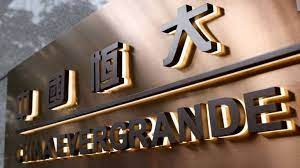In a dramatic turn of events, China’s embattled real estate behemoth, Evergrande, has taken the audacious step of filing for bankruptcy protection in the United States.
This seismic move comes amidst a deepening real estate crisis in China and aims to safeguard the company’s assets while it navigates a complex multi-billion-dollar negotiation with its creditors.
The consequences of Evergrande’s default on colossal debts in 2021 continue to reverberate through global financial markets, igniting concerns about the stability of the world’s second-largest economy.

China Evergrande Group’s Chapter 15 bankruptcy protection filing unfolded in a New York courtroom on a fateful Thursday. This legal maneuver under Chapter 15 offers a lifeline to foreign companies by shielding their US assets as they embark on a challenging journey of debt restructuring.
Remarkably, Evergrande remained tight-lipped in the face of this significant development, declining to comment when contacted by the BBC.
Delving into the sprawling empire of Evergrande reveals the magnitude of this financial storm.
The group’s real estate arm boasts a staggering portfolio of over 1,300 projects across more than 280 cities in China, as per its website. Yet, it doesn’t stop there; Evergrande’s diversification extends to unexpected realms, encompassing an electric car manufacturer and even a football club.
Ever since defaulting on its debt repayments, the company has been engaged in a high-stakes tussle with its creditors, attempting to renegotiate its agreements.
With a debt burden that looms ominously at over $300 billion (£235 billion), Evergrande held the dubious distinction of being the world’s most heavily indebted property developer.
Its shares have languished in suspension since the tumultuous events of the previous year, as investors grappled with the ever-darkening financial clouds.

The extent of Evergrande’s financial woes was laid bare last month when the company disclosed a staggering combined loss of 581.9 billion yuan ($80 billion; £62.7 billion) over the past two years.
This revelation sent shockwaves rippling through global financial markets, reflecting the gravity of the situation.
In a disconcerting déjà vu, another major player in China’s real estate arena, Country Garden, issued a somber warning just last week. It indicated a potential loss of up to $7.6 billion for the first half of the year, adding to the industry’s growing list of casualties.
This grim outlook has cast a pall over some of the most prominent names in China’s real estate sector, as they struggle to secure the necessary funds to complete their sprawling projects.
Steven Cochrane, an analyst from the economics research firm Moody’s Analytics, underscored the gravity of the situation by stating, “The key to this issue is to complete unfinished projects because this will at least keep some of the financing flowing.”
A sobering reality emerges: If construction grinds to a halt, pre-sold homes languish, and buyers cease making mortgage payments, plunging developers further into the abyss of financial uncertainty.
In yet another disquieting revelation earlier this month, Beijing announced that China had slipped into deflation territory, with consumer prices declining in July for the first time in over two years.

This stark signal underscores the fragility of China’s economic growth, a development strikingly different from the rising inflationary pressures felt in many other countries, prompting central banks to hike interest rates aggressively.
Furthermore, China’s imports and exports registered a sharp decline in the past month, casting a shadow over the recovery prospects of the world’s second-largest economy.
Official figures painted a bleak picture, with exports plummeting by 14.5% in July compared to the previous year, while imports witnessed a stark decline of 12.4%.
In response to these ominous economic indicators, China’s central bank made an unexpected move earlier this week, slashing key interest rates for the second time in three months.
This unconventional policy shift aims to breathe life into a waning economy, injecting a sense of urgency into the measures undertaken by Beijing’s financial authorities.
Evergrande’s bankruptcy protection filing in the United States is a stark reminder of the far-reaching consequences of China’s real estate crisis, casting an ominous shadow over the global financial landscape.
With the eyes of the world fixed on this unfolding drama, the fate of Evergrande and the broader implications for China’s economy remain uncertain, making it a story that will undoubtedly continue to captivate and concern both financial experts and the general public alike.

